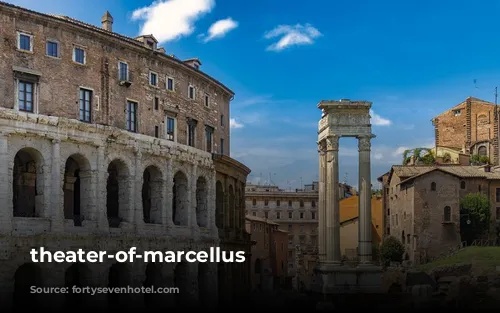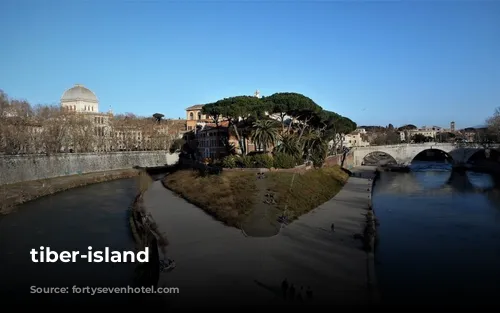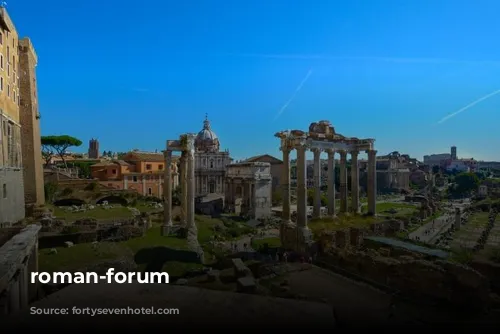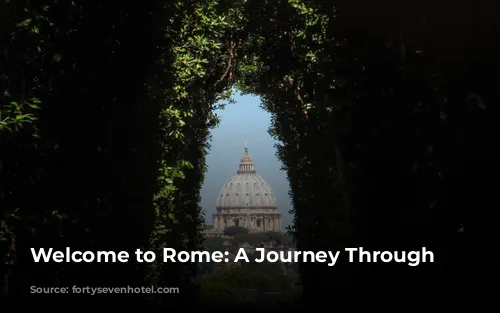Rome, the Eternal City, is a treasure trove of history and culture, waiting to be discovered. From ancient ruins to iconic landmarks, Rome offers a captivating journey through centuries. Let’s explore some of its must-see attractions, each telling a unique story.
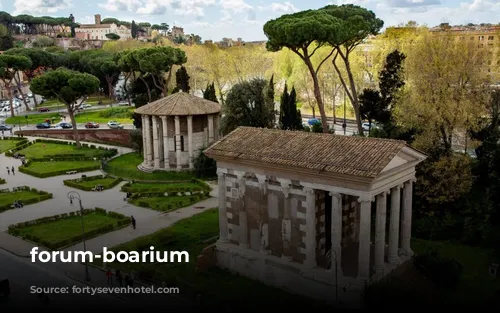
The Ancient Heart of Rome: Forum Boarium & Mouth of Truth
Imagine the bustling energy of the Forum Boarium, the ancient Roman livestock market. This area, nestled between the Aventine, Capitoline, and Palatine hills, was a central hub for trade and commerce. Today, remnants of this vibrant past remain, including two fascinating temples.
The Temple of Portunus, dedicated to the god of harbors and gates, stands majestically with its rectangular structure. Just a short distance away, you’ll find the Temple of Hercules Victor, a circular edifice honoring the protector of trade and animal migrations.
A short walk from the Forum Boarium takes you to the charming Piazza della Bocca della Verità, where the Basilica of Santa Maria in Cosmedin stands proudly. The basilica’s portico houses the legendary Mouth of Truth, a captivating marble mask that was once a manhole, depicting the face of a river god. This iconic artifact is surrounded by a fascinating legend: it was believed to bite the hand of anyone who told a lie! The scene from the film “Roman Holiday” featuring Audrey Hepburn in front of the Mouth of Truth has made this spot even more famous.
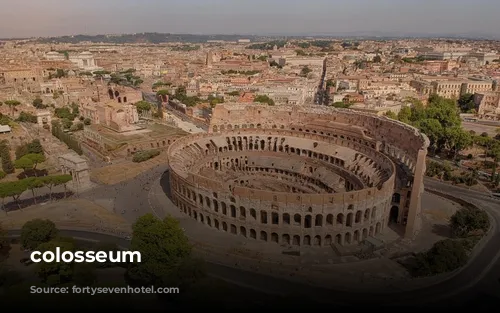
Tiber Island: A Haven of Healing and History
Tiber Island, nestled in the heart of Rome, is a serene escape from the city’s bustle. Connected to the mainland by the Cestius and Fabrician bridges, this island is steeped in history and charm. Since ancient times, it has been associated with healing and medicine.
The island once housed the Temple of Aesculapius, the Greek god of medicine and healing. Today, it is home to the Fatebenefratelli Hospital, founded in 1585, and the Israelite Hospital, located near the Basilica of San Bartolomeo. During the summer months, Tiber Island transforms into a magical open-air cinema, hosting film screenings, director discussions, and film reviews.
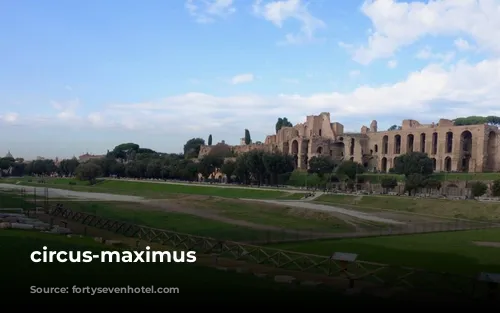
Ancient Spectacles & Architectural Wonders
The Theater of Marcellus is a remarkable reminder of Rome’s theatrical past. This ancient building, commissioned by Julius Caesar and completed by Augustus, was named after his nephew, Marcus Claudius Marcellus. Nestled in the Campo Marzio, near the Temple of Apollo, this magnificent structure continues to host concerts and events during the summer months, transporting visitors back to the grandeur of ancient Rome.
Circus Maximus, the largest stadium built in the history of Ancient Rome, is a testament to the Romans’ love for spectacle. This sprawling arena was dedicated to Jupiter, the king of the gods, and hosted a variety of exciting events, from horse races and gladiatorial combats to chariot races. Today, Circus Maximus hosts concerts, shows, and special events, including the Circo Maximo Experience, which uses augmented and virtual reality to recreate the Circus Maximus in all its historical phases.
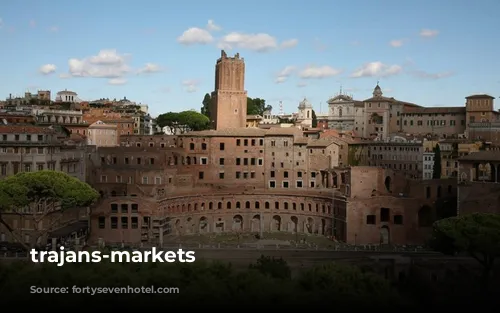
Breathtaking Views & Architectural Masterpieces
Ascending to the highest point of the Aventine Hill, you’ll discover a hidden gem: the Keyhole. This small opening in the entrance door of the Villa of the Priory of the Knights of Malta, offers a mesmerizing view of St. Peter’s Basilica framed by the villa’s lush gardens.
The Colosseum, also known as the Flavian Amphitheater, is a symbol of ancient Roman power and ingenuity. This massive amphitheater, commissioned by Emperor Vespasian, could accommodate up to 50,000 spectators, who witnessed thrilling gladiatorial combats and animal fights.
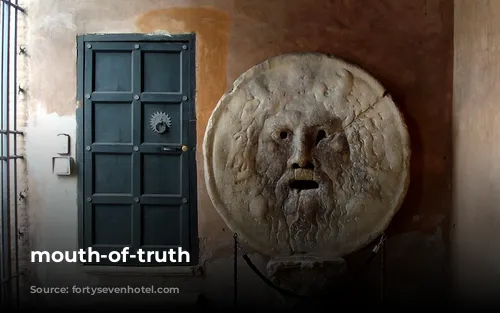
A Journey Through Time: Roman Forum & Trajan’s Markets
The Roman Forum, a vast archaeological park, is the heart of ancient Rome’s political and social life. This once-bustling area, located between Piazza Venezia and the Colosseum, housed numerous temples, basilicas, and public buildings.
Today, visitors can explore the ruins of the Temple of Vespasian and Titus, the Basilica of Maxentius, and the Temple of Romulus, remnants of a vibrant past. The Roman Forum was a stage for public speeches, political gatherings, and even gladiatorial combats.
Adjacent to the Roman Forum, along the Via dei Fori Imperiali, you’ll find the Trajan’s Markets, a remarkable architectural complex dating back to the 2nd century AD. This ancient shopping center, considered one of the oldest in the world, served as a hub for commerce and public life. Since 2007, the Museum of the Imperial Fora has been housed in Trajan’s Markets, showcasing artifacts and exhibitions related to Rome’s history.
